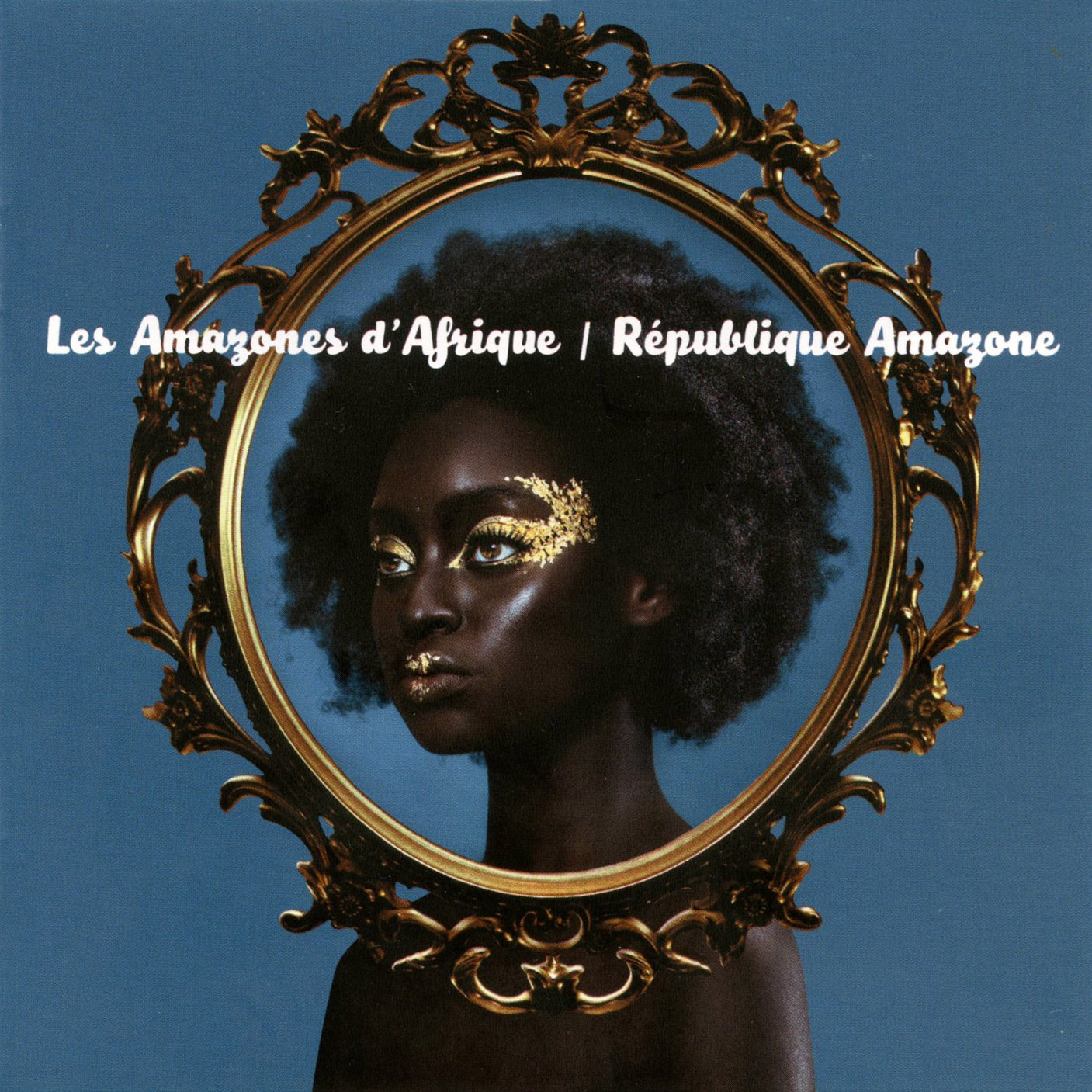Any time West African divas ranging from Benin’s superstar Angelique Kidjo to Kandia Kouyaté, perhaps the greatest living female griot (jelimuso) of Mali; to Mariam Doumbia of Amadou and Mariam; to younger mavericks like Mamani Keita and Nneka of Nigeria, all come together on a single recording, it’s news. This collective goes by the name Les Amazones d’Afrique, nodding to Les Amazones de Guinée, the all-female army pop band that formed under Sekou Toure in the 1960s and regrouped in 2005 for the album Wamato. The original Amazones were literally an all-female army that fought to defend King Béhanzin of Dahomey (now Benin) back in the mid-19th century. With all that as prologue, this ensemble of luminary ladies convenes under the direction of French-Irish musician and producer Liam Farrell (AKA Doctor L) to perform 12 genre-bending tracks as part of the ongoing campaign for gender equality worldwide.
Ambitious enough for you? Well, there’s more. Farrell’s decidedly post-modern production style nods to Malian Wassoulou music and Mande griot pop, as well as Nigerian Afrobeat and Naija pop, electronic dance music and ambient techno, while never quite settling into any of these areas. The voices—also including lesser-known artists like Rokia Koné, Massan Coulibaly, Pamela Badjogo and Mariam Koné—exchange leads fluidly, often injecting powerful traditional expression into these contemporary soundscapes. Expression is everything since there’s little singing in English, or even French, here and only a few of the lyrics are translated in the album notes. That’s not a problem, though. The message of female grit, solidarity and determination is evident throughout, no interpretation needed.
“Dombolo” stomps in with a sound somewhere between deep drums and distorted prongophone. (Lovely word, right? I heard it in Nigeria and consider it a fine substitute for the much derided and misleading term “thumb piano.”) The groove pumps and a chorus of processed voices chants, with Angelique Kidjo’s unmistakable gut cry prominent in the mix. “Doona” slides by with an easy funk lope, dressed up with splashes of wah-wah guitar all a setup for the magnificent, slicing sharp voice of Mamani Keita, no stranger to Malian crossover pop. “Deep in Love” hews closer to slow reggae, but as an envelope for Malian blues featuring searing belts of passion from Rokia Koné. Nneka softens the mood considerably with her intimate pop caress “La Dame et Ses Valises (The Woman and Her Suitcases).”
The pentatonic Wassoulou-infused songs hit the hardest, notably the relatively spare and acoustic “Anisokoma,” in which Rokia exchanges vocals with Kandia Kouyaté over a groove based in the spectacular kamele ngoni playing of Harouna Samaké, currently a star attraction in Salif Keita’s band. “Full Moon” is also evocative, merging down-home Wassoulou sensibilities with the easy shuffle of Nigerian Afrobeat. The more explicitly Mande references work a little less well. The great Kandia Kouyaté, who has reemerged after years of recovering from a stroke, feels a little lost among the heavily electronic throbs and echoes of “Wedding.” The song “I Play the Kora” is the album’s featured track, with its proceeds going to the Panzi Foundation in support of victims of sexual violence. This track’s strength is its variety of vocal timbres coming in quick succession, from a cool Mande choral refrain to edgier, gutsier interventions. Here Kandia’s moment is exquisite.
Hard to say whether such experimental work will endure. It does stand up to repeat listens, and there’s more to unpack each time. But you need to be ready to experience the full spectrum hues of the global rainbow—all at once. Perhaps that’s exactly the point.








